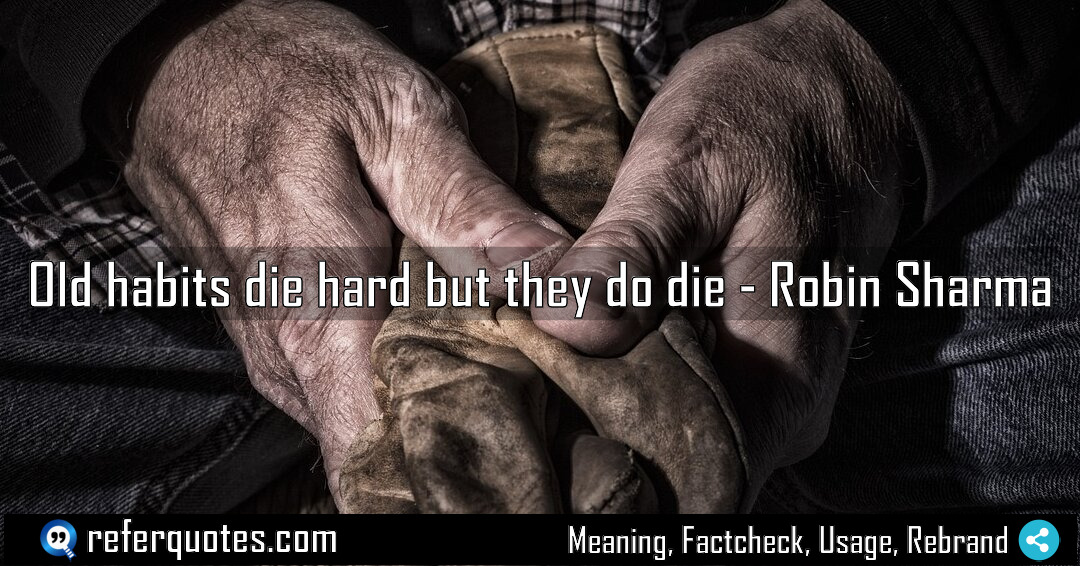Old habits die hard but they do die. It’s a powerful truth I’ve seen play out time and again. The initial resistance is real, but the transformation is absolutely possible.
Share Image Quote:Table of Contents
Meaning
This quote is a two-part truth bomb. It first acknowledges the immense difficulty of breaking a long-held habit, then delivers the knockout punch: no matter how ingrained, that habit can be defeated.
Explanation
Look, I used to think this was just a nice, motivational saying. But after years of working with people on personal change, I see it as a fundamental law. The “die hard” part? That’s your brain on autopilot. Neural pathways are like well-worn trails in a forest—they’re the easiest path to take. Changing them feels physically and mentally uncomfortable. It’s a fight. But the “but they do die” part? That’s the promise of neuroplasticity. When you consistently choose a new path, you literally blaze a new trail. The old one, without traffic, starts to get overgrown. It fades. It might never fully disappear, but it becomes a ghost path, not the main road. It’s not about willpower alone; it’s about consistent redirection.
Quote Summary
| Context | Attributes |
|---|---|
| Original Language | English (3668) |
| Category | Personal Development (697) |
| Topics | change (101), discipline (252), habits (85) |
| Literary Style | direct (414) |
| Emotion / Mood | hopeful (357) |
| Overall Quote Score | 77 (179) |
Origin & Factcheck
This specific phrasing comes straight from Robin Sharma’s 1999 bestseller, The Monk Who Sold His Ferrari. Now, the *sentiment* behind it is ancient, often misattributed to Ben Franklin or others who wrote about habits being like cables. But the concise, powerful “Old habits die hard but they do die” is pure Sharma from the late 90s.
Attribution Summary
| Context | Attributes |
|---|---|
| Author | Robin Sharma (51) |
| Source Type | Book (4032) |
| Source/Book Name | The Monk Who Sold His Ferrari (51) |
| Origin Timeperiod | Contemporary (1615) |
| Original Language | English (3668) |
| Authenticity | Verified (4032) |
Author Bio
Robin Sharma built a second career from the courtroom to the bookshelf, inspiring millions with practical ideas on leadership and personal mastery. After leaving law, he self-published The Monk Who Sold His Ferrari, which became a global sensation and launched a prolific writing and speaking journey. The Robin Sharma book list features titles like Who Will Cry When You Die?, The Leader Who Had No Title, The 5AM Club, and The Everyday Hero Manifesto. Today he mentors top performers and organizations, sharing tools for deep work, discipline, and meaningful impact.
| Official Website | Facebook | X| Instagram | YouTube
Where is this quotation located?
| Quotation | Old habits die hard but they do die |
| Book Details | Publication Year: 1997; ISBN: 9780062515674; Latest Edition: HarperSanFrancisco Edition (2011); Number of Pages: 198 |
| Where is it? | Chapter: The Practice of Discipline, Approximate page from 2011 edition: 77 |
